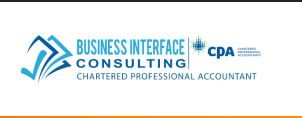A Comprehensive Guide to Filing Taxes in Manitoba
BF
Understanding the Basics of Filing Taxes in Manitoba
Filing taxes in Manitoba can seem daunting, especially if you're new to the process. Understanding the basic requirements and timeline is crucial to ensuring a smooth experience. In Manitoba, as in the rest of Canada, the tax year runs from January 1 to December 31, and taxes are typically due by April 30 of the following year. Filing late can lead to penalties and interest charges, so it's important to be timely.

Required Documents and Information
Before you begin the filing process, gather all necessary documents. This includes T4 slips from your employer, receipts for deductions or credits, and any income statements. Having these documents on hand will streamline the process and help you avoid errors. Additionally, ensure that your personal information, such as your Social Insurance Number (SIN) and address, is up to date.
Common Deductions and Credits
Manitoba offers several deductions and credits that can reduce your taxable income. Some common ones include the basic personal amount, tuition and education credits, and medical expenses. Understanding and utilizing these deductions can significantly impact your tax return. Be sure to keep receipts and documentation for any expenses you plan to claim.

Filing Methods
There are multiple ways to file your taxes in Manitoba. You can file online using certified software, which is often the quickest and most efficient method. Alternatively, you can file a paper return by mailing your forms to the Canada Revenue Agency (CRA). If you’re uncertain about handling your taxes, consider hiring a tax professional to assist you.
Online Filing Benefits
Filing online has several advantages, including faster processing times and immediate confirmation that your return has been received. Many online platforms also offer step-by-step guidance and error-checking features to help ensure accuracy. Additionally, refunds are typically processed more quickly when filed electronically.

Understanding Your Tax Assessment
After filing, you will receive a Notice of Assessment from the CRA, detailing the outcome of your return. It’s essential to review this document carefully to ensure there are no discrepancies. If you notice any errors, contact the CRA promptly to resolve them. Keep this document for your records, as it may be needed for future reference.
Handling Discrepancies
If you disagree with your assessment, you have the right to object. To do this, file a formal objection within 90 days of receiving your Notice of Assessment. This process involves providing additional information and documentation to support your claim. It's advisable to consult with a tax professional if you're unsure about how to proceed.
Conclusion
Filing taxes in Manitoba doesn't have to be stressful. By understanding the process, gathering the necessary documents, and utilizing available resources, you can file your taxes confidently and accurately. Remember, staying informed and organized is key to a successful tax season.

